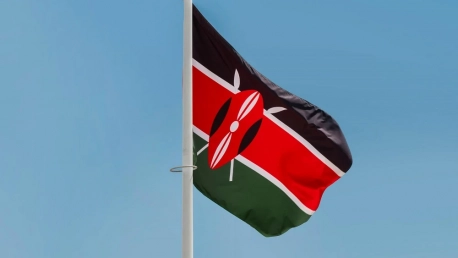The rise of robotics and AI represents a technological revolution, with Kenya emerging as a leader in AI readiness in Africa. Nevertheless, the country stands at a crossroads due to the controversial Kenya Robotics and AI Society Bill 2023. The bill’s heavy focus on regulation is sparking intense debate, as there are fears that it may hinder the momentum of Kenya’s tech industry. The tech sector in Kenya has been thriving with minimal regulations, and the bill raises alarms about potentially curbing the innovative spirit that has driven its success. Stakeholders are worried that the bill could impose constraints that would inhibit the natural progression of Kenyan tech advancements, begging the question of whether this regulation will do more harm than good to the country’s technological future.
A Closer Look at the Bill’s Controversy
The Kenya Robotics and AI Society Bill 2023 has generated significant criticism from various quarters, including IT professionals and the American Chamber of Commerce. The stipulation for entities in the robotics and AI sectors to register with a new body or face substantial fines is seen as a potentially restrictive move. The bill’s focus, which some perceive as being skewed towards robotics, leaves other vital areas of AI largely unaddressed. There are worries that this could create regulatory loopholes or disparities that benefit one area while inadvertently neglecting others that are equally critical for Kenya’s technological ecosystem.Moreover, the process of drafting the bill itself has been a subject of scrutiny. Allegations point toward an inadequate level of engagement with stakeholders who are pivotal in these sectors. This lack of inclusion has raised concerns about whether the bill truly encapsulates the perspectives and needs of those it aims to regulate. Industry leaders assert that the proposal may not only stifle the tech ecosystem with constricting oversight but also faces the danger of being hamstrung by legal issues due to potentially poor legislative drafting practices. This criticism highlights a broader apprehension that insufficient collaboration in the bill’s formulation process may yield a regulation that is out of touch with real-world applications and innovation milestones.
Balancing Regulation with Innovation
Kenya is at a pivotal point in advancing as a regional AI leader, and the Kenya Robotics and AI Society Bill is at the center of this journey. The legislation aims to strike a delicate balance between regulating AI to protect the public and nurturing innovation. Members of the Communications, Information, and Innovation committee are engaging with tech industry stakeholders, signifying an openness to refine the bill in line with practical insights. As the country edges toward a defining moment in its tech narrative during the public consultation phase, the final draft of the bill will be indicative of Kenya’s future in the AI space. Will it solidify the country’s innovation trajectory, or introduce obstacles that could slow it down? The implications of this balance are profound, impacting data access and the development of AI locally, with the potential to shape Kenya’s technological frontier.









